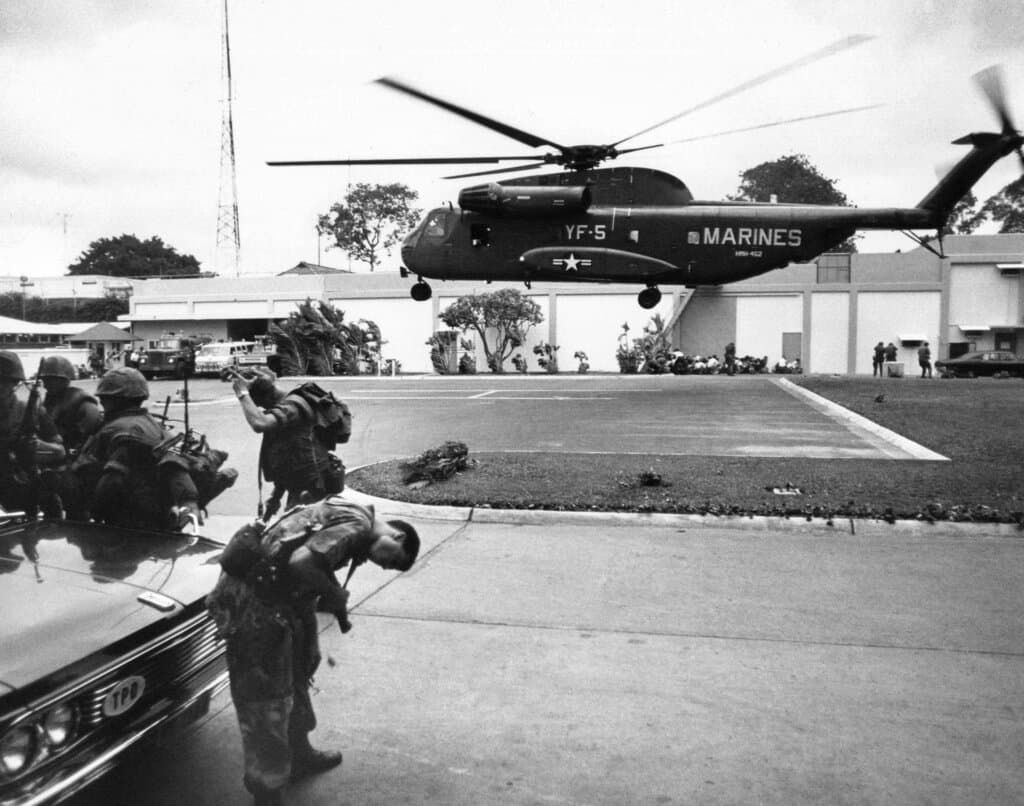Memorial Day Reminds That No Greek Tragedian Could Have Devised the Complexities of Vietnam
Yet let no one say that the cause was an ignoble one or that the 57,000 Americans who died in Vietnam do not now deserve the homage of their countrymen.

Memorial Day is a time to contemplate all those who have physically sacrificed themselves for their country in war or acts of civic bravery. In the case of veterans of foreign wars this is specifically done on Veterans Day on November 11, the anniversary of the end of World War I in 1918.
On that day the German representatives effectively surrendered to the supreme commander of the Allied armies, the French Marshal Foch, on his railway car at Compiègne. Foch roughly corresponds to General Dwight Eisenhower in the Second World War.
Memorial Day began as Decoration Day in 1868 in recognition of those who died in the Union armies in preservation of the Union and the emancipation of the slaves — the 360,000 young men who perished in that war, including their incomparably admirable commander-in-chief, Abraham Lincoln.
As time elapsed, it was rightly deemed appropriate that the act of remembrance and of national gratitude should be extended to all who died in all of America’s wars, ultimately including the 260,000 dead to the Confederacy: rebels though they were, they were Americans who fought valiantly and are fairly deemed to be regional patriots rather than militant bigots.
There could not today be more than 5 percent of the population of what were the Confederate states that regret that the Union won the Civil War. It was a different time and many had a greater loyalty to their state than to their country, which was much younger and had not yet addressed the deadly ambiguities of being as Lincoln said, “half slave and half free.”
Lincoln, in his second inaugural address, suggested that the war then nearing its end was the righteous commandment of Almighty Province in inflicting “woe” on those by whose act the evil of slavery was installed and maintained in the United States.
The president defended the justice of the result “if God wills that all the treasure piled up by the bondsman’s 250 years of unrequited toil shall be sunk, and that every drop of blood drawn by the lash shall be repaid by a drop of blood drawn by the sword.”
Not all Americans honored on Memorial Day died in just causes, but they died in what they sincerely and courageously believed to be just causes. General Abner Doubleday said of the battlefield of Gettysburg as the battle ended: “each house, church, hovel, and barn is filled with the wounded of both armies. The ground is covered with the dead.”
In May 1985, President Reagan, in an observation of the 40th anniversary of the end of World War II in Europe, traveled with the West German chancellor, Helmut Kohl, to the Bergen-Belsen concentration camp and then to the German military cemetery at Bitburg, where there were 49 Waffen-SS military dead among 2000 dead German soldiers.
The presence of any members of the SS, which had been judged in its entirety to be a criminal organization, made the visit controversial. The president stated that it was not known when the visit was scheduled that there were any SS members interred there.
Yet Reagan declined to change the schedule because it was overwhelmingly a cemetery of those who perished for their country in a needless war and that even very young men drafted or brainwashed into serving a criminal organization who die in an unjust aggressive war, are victims.
This is why it is nonsense to remove statues of General Robert E. Lee or of Confederate soldiers and to rename military facilities. The whole nation acknowledges with thanksgiving that the Union won the Civil War; that does not expunge legitimate sadness for the death of 260,000 young men of the South, who had died according to General U.S. Grant, “for a cause, though that cause was, I believe, one of the worst for which a people ever fought, and one for which there was the least excuse.”
Memorial Day commemorates those who died for a cause that was believed to be just and sacrifice which required courage. The argument often has been made that the Mexican War was not a just war but an aggressive war undertaken for insufficient reason. There is some truth to that.
The demographic and strategic realities, though, had determined that the nearly 1 million square miles that America added to its territory as a result of the war, including its now two most populous states, California and Texas, were not going to remain Mexican and have thrived much more thoroughly as part of America than they would have otherwise.
Many people disapproved of the Vietnam War. Relations between America and Vietnam today are cordial. Yet President Eisenhower had approved the admission of South Vietnam to the South East Asia Treaty Organization, whose members were obliged to help defend it.
The great majority of South Vietnamese did not wish to be communist, and Vietnam had in fact never in its history been united before other than as a French colonial jurisdiction. The principal objection to the war was not the respective merits of the contending parties.
It was that President Johnson did not get an appropriate authorization for the measures that he took in committing American forces to the theater; that he ignored the advice of General MacArthur and General Eisenhower and others that if forces were going to be committed, the Ho Chi Minh Trail had to be cut.
Instead of setting out to win the war and applying appropriate force in appropriate places to do it, LBJ oscillated between escalation in the hope that it would induce war-weariness in Hanoi, and de-escalation in the hope that it would bring peace.
The Democrats rushed into the war, lost faith in their leader, stabbed Johnson in the back; Nixon took his place and salvaged a non-Communist Vietnam while withdrawing from the country. When, as he knew would occur, the North Vietnamese resumed their invasion, he was prevented from the bombing campaign which, combined with the South Vietnamese Army’s resistance in April 1972 defeated the North Vietnamese and the Vietcong and forced them to seek peace.
Instead, the Democrats destroyed the Nixon presidency over the asinine Watergate affair and insisted on delivering South Vietnam to the North. At least half a million people were slaughtered and nearly a million people took to rickety boats to escape the communists; nearly 700,000 were at least admitted to the United States.
The war was not a success for reasons so complicated that no Greek tragedian could have devised them. Yet let no one say that the cause was an ignoble one or that the 57,000 Americans who died in Vietnam do not now deserve the homage of their countrymen
The Afghanistan expedition was ultimately unsuccessful, and the departure was a disgrace and an embarrassment to all Americans. The second Iraq War was also a terrible fiasco as approximately 60 percent of the population of Iraq to de facto government by the Iranians.
These, though, were the errors of the presidents and commanders involved. Rather than having reservations about the worthiness of those who died in those actions, they doubly deserve our sympathy and admiration because they did not have the benefit of command by great men like Washington, Lincoln, Grant, Sherman, Roosevelt, Eisenhower, MacArthur, Marshall, and Nimitz.
All those Americans who gave “the last full measure of devotion,” in any branch of the Armed Forces or as firefighters, police, and emergency responders deserve to be remembered with gratitude on this day, even as the nation celebrates.

